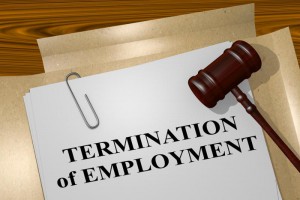For several days ESPN and other networks and sports outlets have been airing and discussing certain quotes from Karl’s book that are highly critical of New York Knick Carmelo Anthony. These quotes include the following:
- “Carmelo was a true conundrum for me in the six years I had him.”
- “He was the best offensive player I ever coached. He was also a user of people, addicted to the spotlight and very unhappy when he had to share it.”
- “He really lit my fuse with his low demand of himself on defense. He had no commitment to the hard, dirty work of stopping the other guy.”
Karl coached Anthony from January 2005 to February 2011 when he played for the Denver Nuggets. Anthony was later traded to the New York Knicks. Karl said the trade was “a sweet release for the coach and the team, like popping a blister.” Karl also criticized J.R. Smith and Kenyon Martin by comparing them and Carmelo Anthony, to “the spoiled brats you see in junior golf and junior tennis.” Surprisingly, Carmelo Anthony so far has refrained from making any counter remarks about Karl.
Tips on Using Non-Disparagement Clauses
Because Karl’s statements involve a well-known professional athlete (who is securely employed and well paid), many view them as non-threatening and amusing. But these types of comments are anything but amusing when they ruin someone’s reputation or job opportunities. That is why both employers and their employees often are concerned about being disparaged by the other when their relationship comes to an end.
For example, employees want to make sure that they are employable and will not be blackballed by their employer. Similarly, employers may be fearful that a disgruntled former employee will make public statements that could harm their reputation with customers.
One tool employees and employers can use to protect their reputation from such harm is the use of a non-disparagement clause as part of a separation agreement. A non-disparagement clause requires the other party to refrain from making negative and disparaging comments about the other. They typically do not have any time limits. A non-disparagement clause can serve as an effective deterrent, but they are not foolproof. Careful thought should be given before agreeing to a non-disparagement clause. Here are some issues employers and employees should consider if they are serious about signing a clause that has some legal teeth:
- For employee’s, make sure the non-disparagement clause is mutual. Often, the employer’s proposed agreement is one-sided. Why? Because employers do not want to be responsible for the conduct of people they cannot control or know, such as every parent, subsidiary, affiliate, officer, director, employee, successor and assign of the employer.
- If the employer refuses to make the non-disparagement clause mutual, the employee should request that certain employees who they are concerned will make negative comments sign the agreement. This is seldom successful. A more common term is that the employer will agree to advise specific individuals within the company to not make disparaging remarks about the employee to third parties. This is not the ideal situation, because the employer will not be liable if its employees do not comply with the instruction. Nonetheless, the clause may still effectively deter certain employees from making harmful comments.
- There is no universal definition for the word disparaging. If you wish to avoid any confusion and are more serious about the enforceability of the clause, consider providing a specific definition for disparaging.
- Consider being very specific about the different forums that a party cannot use to disparage the other party (e.g., no statements a can be made including through the news media, press, Facebook, LinkedIn, Twitter or other social media).
- Add language making the clause a material term of the agreement and/or add a liquidated damages provision.
- Inserting a clause that outlines the protocol for employment references can limit the likelihood of disparaging comments to prospective employers. For example, the parties can agree that all calls for references will be directed/transferred to a specific employee at the company who will only provide dates of employment, job title, and/or specific language that explains the reason for separation.
Be Mindful of Government Scrutiny
In recent years government agencies have scrutinized the enforceability of certain non-disparagement clauses that they believe are too broad. The Equal Employment Opportunity Commission (“EEOC”) has challenged the validity of releases that bar a party from filing a charge of discrimination. The National Labor Relations Board (“NLRB”) has taken the position that many non-disparagement provisions are too broad and violate employees’ Section 7 rights to engage in concerted activity under the NLRA. The Security and Exchange Commission (“SEC”) also has challenged certain clauses as interfering with employees’ whistleblower protections.
Accordingly, employers may wish to include a provision in the agreement that makes clear that the non-disparagement clause does not interfere with an employee’s right to file a charge of discrimination with the EEOC, or interfere with the employee’s rights under the NLRA or whistleblower protections under securities laws.

